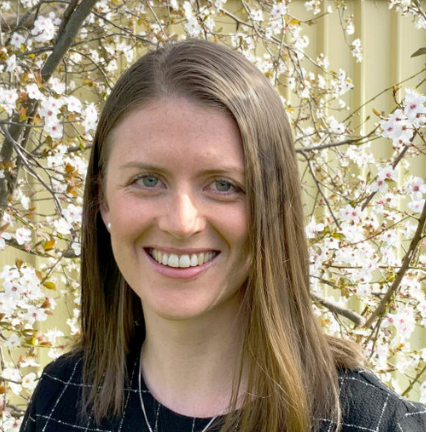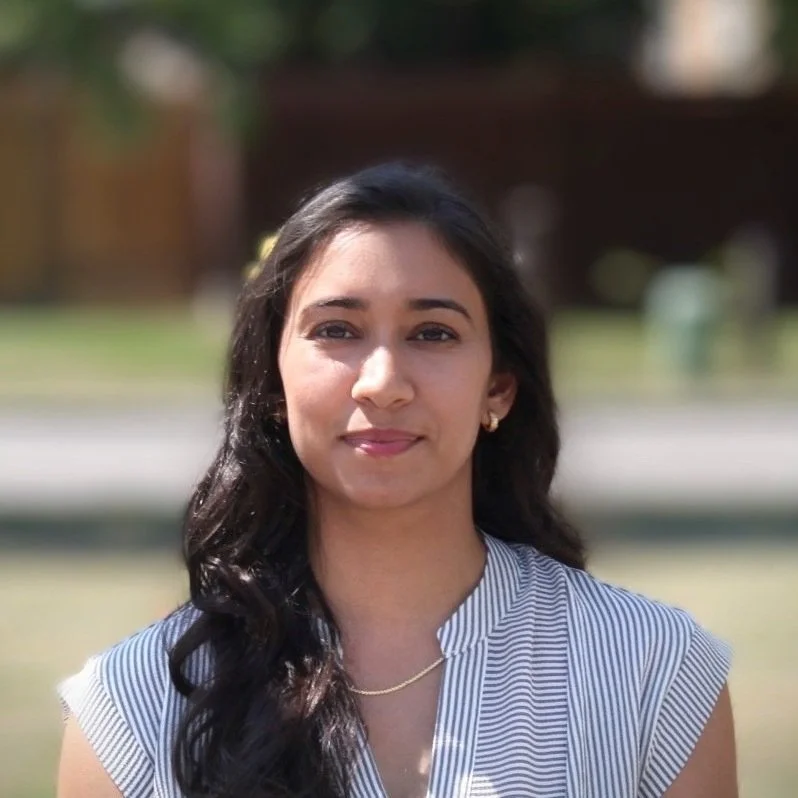Welcome to our blog series highlighting the work of our postdoctoral fellows!
Postdoctoral fellows play a crucial role within CHILD-BRIGHT's research projects underway. These fellows are passionate about implementation science (IS) and patient-oriented research (POR) and its potential to improve health outcomes for children and youth with brain-based developmental disabilities and their families.
Today, we’re delighted to introduce Simonne Collins, the newest member of CHILD-BRIGHT's IS Research Program.
IMPLEMENTATION SCIENCE PROGRAM
Simonne Collins (she/her)
Postdoctoral fellow, STIC Lab
IWK Health, Halifax, Nova Scotia
From Melbourne to Halifax
Simonne, our newest postdoctoral fellow, hails from Melbourne, Australia. In the summer of 2024, propelled by her commitment to patient-oriented research (POR), she relocated to Halifax to start a CHILD-BRIGHT research fellowship based within the Strengthening Transitions in Care Lab at the IWK Health Centre. Her position with CHILD-BRIGHT is being supported by the IWK Foundation. Simonne has quickly become a pivotal member of the network’s Implementation Science (IS) Research Program!
Simonne has been a proponent of POR since being introduced to the concept during her doctoral studies in Psychology at Monash University, in Melbourne. Her doctoral studies focused on children at risk of brain-based developmental disabilities. “There were things that we weren’t sure about,” she recalled. “We didn’t know whether we were asking the right questions or if they were even relevant to our population.”
Ultimately, she and her team decided to consult with parent research partners, and the experience was truly illuminating: “It was so valuable to hear their insights! Hearing from PWLEs allowed us to get at the heart of the barriers they face.”
Now, Simonne is delighted to be broadening her skillset in POR and implementation science—and the move to Canada adds to the adventure!
“All our research should be with patient-partners and PWLEs!”
Simonne’s role at CHILD-BRIGHT
As part of CHILD-BRIGHT's Phase 2, the IS Research Program is working to better understand how evidence can be systematically applied in routine practice to improve the quality and effectiveness of pediatric health services in Canada.
Under the supervision of co-leads Steven Miller and Janet Curran, Simonne is supporting two of the IS Research Program’s main goals: 1) review which IS methods are being used across the network’s Phase 2 projects and identify the unique factors that should be considered by IS project teams when implementing treatments and interventions for children with brain-based developmental disabilities; and 2) understand how pan-Canadian research networks like CHILD-BRIGHT can build IS skills among postdoctoral research fellows. Simonne reviews the projects’ research protocols; conducts interviews with researchers, partners with lived and living experience (PWLEs), and youth partners; analyzes the data; and disseminates the findings.
Simonne also organizes regular meetings for the network’s postdoctoral fellows, giving them the opportunity to discuss the challenges they’re facing, form connections, and build a community within CHILD-BRIGHT. Experts in the field are invited to some of the meetings to share insights on implementation science methodologies and career development.
Looking to the future
When asked how she thought her time at CHILD-BRIGHT would impact her career, Simonne was effusive: “Oh, quite considerably!”
She's particularly excited to be immersed in IS research. “I’m really developing those skills,” she said. She’s also grateful to have the opportunity to work with such a diverse group of health experts, which includes researchers, clinicians, and PWLEs. “I’m building a great network across Canada!” Since her arrival, Simonne has also found it eye-opening to learn about another country’s health care system and its challenges. “And I’m bringing my own cultural insights to the network,” she added.
Today, Simonne hopes that her research will always incorporate POR methodologies. “I think researchers are getting better at understanding the impact of POR on health outcomes,” she said. “It allows us to address the needs and challenges that actually matter to patients and families.”







